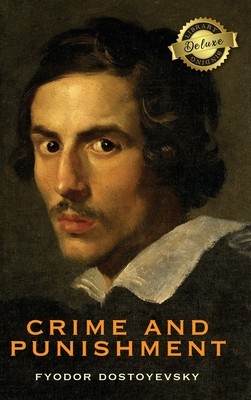
- Išsiųsime per 10–14 d.d.
- Autorius: Fyodor Dostoyevsky
- Leidėjas: Engage Classics
- ISBN-10: 1774378914
- ISBN-13: 9781774378915
- Formatas: 15.2 x 22.9 x 3 cm, kieti viršeliai
- Kalba: Anglų
- Extra -15 % nuolaida šiai knygai su kodu: ENG15
Atsiliepimai
Aprašymas
Crime and Punishment follows the mental anguish and moral dilemmas of Rodion Raskolnikov, an impoverished ex-student in St. Petersburg who formulates and executes a plan to kill an unscrupulous pawnbroker for her cash. Raskolnikov, in attempts to defend his actions, argues that with the pawnbroker's money he can perform good deeds to counterbalance the crime, while ridding the world of a vermin. He also commits the murder to test a theory of his that dictates some people are naturally capable of such actions, and even have the right to perform them.
Several times throughout the novel, Raskolnikov compares himself with Napoleon Bonaparte and shares his belief that murder is permissible in pursuit of a higher purpose. Dostoyevsky's literary works explore human psychology in the troubled political, social, and spiritual atmosphere of 19th century Russia. Many literary critics rate him as one of the greatest psychologists in world literature.
EXTRA 15 % nuolaida su kodu: ENG15
Akcija baigiasi už 1d.11:46:49
Nuolaidos kodas galioja perkant nuo 10 €. Nuolaidos nesumuojamos.

- Autorius: Fyodor Dostoyevsky
- Leidėjas: Engage Classics
- ISBN-10: 1774378914
- ISBN-13: 9781774378915
- Formatas: 15.2 x 22.9 x 3 cm, kieti viršeliai
- Kalba: Anglų
Crime and Punishment follows the mental anguish and moral dilemmas of Rodion Raskolnikov, an impoverished ex-student in St. Petersburg who formulates and executes a plan to kill an unscrupulous pawnbroker for her cash. Raskolnikov, in attempts to defend his actions, argues that with the pawnbroker's money he can perform good deeds to counterbalance the crime, while ridding the world of a vermin. He also commits the murder to test a theory of his that dictates some people are naturally capable of such actions, and even have the right to perform them.
Several times throughout the novel, Raskolnikov compares himself with Napoleon Bonaparte and shares his belief that murder is permissible in pursuit of a higher purpose. Dostoyevsky's literary works explore human psychology in the troubled political, social, and spiritual atmosphere of 19th century Russia. Many literary critics rate him as one of the greatest psychologists in world literature.




Atsiliepimai